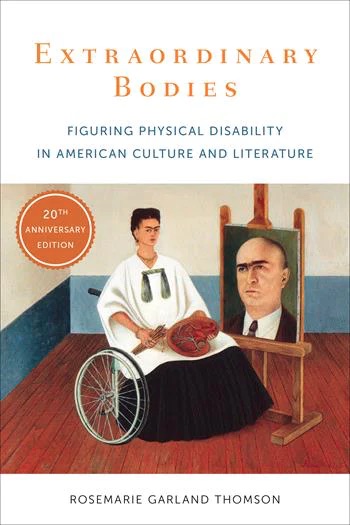Extraordinary Bodies is a cornerstone text of disability studies, establishing the field upon its publication in 1997. Framing disability as a minority discourse rather than a medical one, the book added depth to oppressive narratives and revealed novel, liberatory ones. Through her incisive readings of such texts as Harriet Beecher Stowe's Uncle Tom's Cabin and Rebecca Harding Davis's Life in the Iron Mills, Rosemarie Garland-Thomson exposed the social forces driving representations of disability. She encouraged new ways of looking at texts and their depiction of the body and stretched the limits of what counted as a text, considering freak shows and other pop culture artifacts as reflections of community rites and fears. Garland-Thomson also elevated the status of African-American novels by Toni Morrison and Audre Lorde. Extraordinary Bodies laid the groundwork for an appreciation of disability culture and an inclusive new approach to the study of social marginalization.
- Table of Contents
- Preface to the Twentieth Anniversary Edition
- Preface and Acknowledgments
- I. Politicizing Bodily Differences
- 1. Disability, Identity, and Representation: An Introduction
- 2. Theorizing Disability
- Illustrations
- II. Constructing Disabled Figures: Cultural and Literary Sites
- 3. The Cultural Work of American Freak Shows, 1835-1940
- 4. Benevolent Maternalism and the Disabled Women in Stowe, Davis, and Phelps
- 5. Disabled Women as Powerful Women in Petry, Morrison, and Lorde
- Conclusion: From Pathology to Identity
- Notes
- Bibliography
- Index

